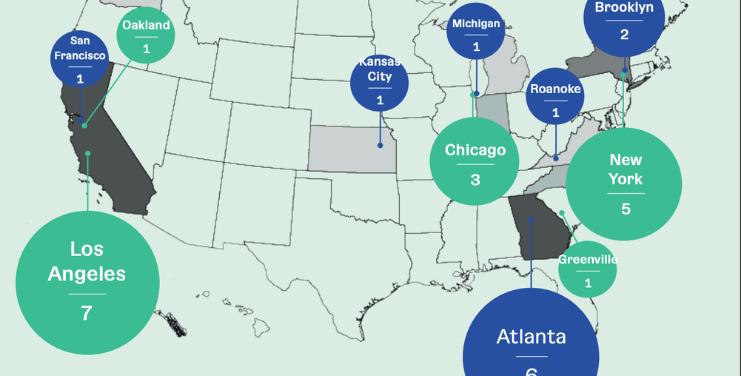Key Insights:
- In the year since the racial reckoning prompted from George Floyd’s murder, Black business owners are now in a worse place since the racial equity giving.
- An Operation HOPE survey from November found that Black business owners’ access to capital decreased along with their revenue expectations.
The ability of Black small business owners to access capital has worsened since last year’s racial equity movement and the ongoing pandemic, according to a new Operation HOPE and Momentive study among more than 600 Black small business owners.
Since January, the percentage of Black business owners reporting that they have no access at all to financial institutions increased to 26 percent, four percent higher than previous years. Thirty-nine percent of Black respondents lack access to financial institutions, an increase since Q1’21. Collectively, a staggering 65 percent of small Black-owned businesses report they have little to no access to financial institutions.
As a result, 52 percent of Black businesses now say their greatest need is access to capital, up from 46 percent just since the start of the year.
“There’s no doubt that access to capital is a major barrier to entrepreneurship for people of color in general and Black aspiring entrepreneurs specifically, Laura Wronski, senior manager research science at Momentive told The Plug. “The best way to push for progress and equity is to consistently track important metrics like this one, with the hope that future aspiring entrepreneurs won’t have to face the same obstacles of previous generations.”
The situation has resulted in presiding pessimism about forthcoming financial performance among Black business owners. When asked about revenue expectations over the next year, the percentage of respondents that felt their revenue would decrease through the end of 2022 more than doubled.
In Q1’21, four percent of Black businesses projected their revenue would decrease, as of Q3’21 that number has shot up to 10 percent. Fewer Black businesses project that their revenue will increase over the next year, 85 percent at the start of the year, compared to 77 percent now.
“It’s been a difficult year for small businesses in general,” Wronski said. “With that in mind, some of the responses among Black entrepreneurs aren’t surprising when considering the bigger societal changes. Small business owners have had to overcome constantly changing regulations, shutdowns, reopenings, a once-in-a-generation labor shortage, and now supply chain disruptions and a potential inflation escalation,” she continued.
“This has been an off-the-charts year on many dimensions, so this financial uncertainty is not specific to any race, gender, or any other demographic.”
2021 has dashed the hopes of many Black business owners who may have initially been optimistic that the “racial reckoning” following George Floyd’s murder in 2020 would impact change and foster support in the Black community.
At the start of 2021, only one-fifth of Black business owners thought that a year into the future, their path to success wasn’t likely to get easier, as of Q’3 more than one-fourth (27 percent) of survey participants say it won’t get any easier to succeed.
Throughout this harrowing year for Black business owners, respondents almost unanimously (97 percent) agreed that if more Black businesses were to succeed it would bring about a more equitable society.
“Black entrepreneurs are most excited when they see other Black entrepreneurs succeeding. You can’t be it unless you see it, and there’s no denying that Black entrepreneurs are eager to see others like them achieve their goals,” Wronski said.








